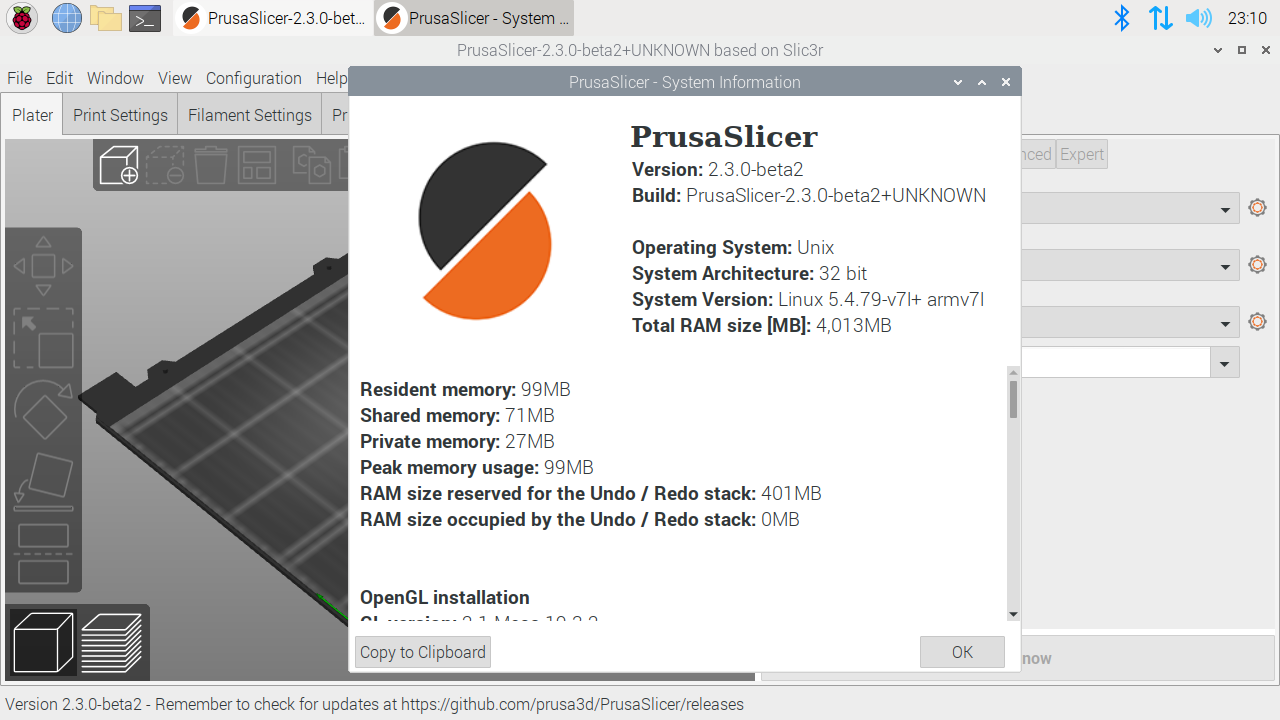PrusaSlicer packaged in an ARM AppImage for the Raspberry Pi 4. Build utilities and releases.
To get a pre-built AppImage, see Releases.
An AppImage bundles built software into a single executable file, making its use as simple as downloading and running. This particular AppImage does not fulfill the entire intent of the format (some dependencies need to be installed on the host), but it allows for PrusaSlicer to be more easily used, removed and upgraded by an end user.
Recommended: Raspberry Pi 4 (or better) with at least 8GB RAM
If for any reason you would like to build your own ARM AppImage, all the files needed for doing so are in this repository. Clone or download this repository, choose your arch (aarch64/armhf) and follow the instructions in the header of the AppImageBuilder-$ARCH-$TYPE.yml to build an AppImage similar to the ones provided here. Alternatively, run ./build.sh (and follow the prompts) to have this done for you.
-
Run through first boot setup.
-
Install dependencies for appimage-builder (N.B. screen is optional):
sudo apt install -y libgl1-mesa-dev libglu1-mesa-dev build-essential cmake python3-pip python3-setuptools \ patchelf desktop-file-utils libgdk-pixbuf2.0-dev fakeroot strace fuse libgtk-3-dev m4 zstd screen ninja-build -
Run the build assistant with screen which will help install any remaining build dependencies and begin the build process:
screen ./build.sh
When the build finishes, an AppImage will be present in the same directory as the .yml file.
